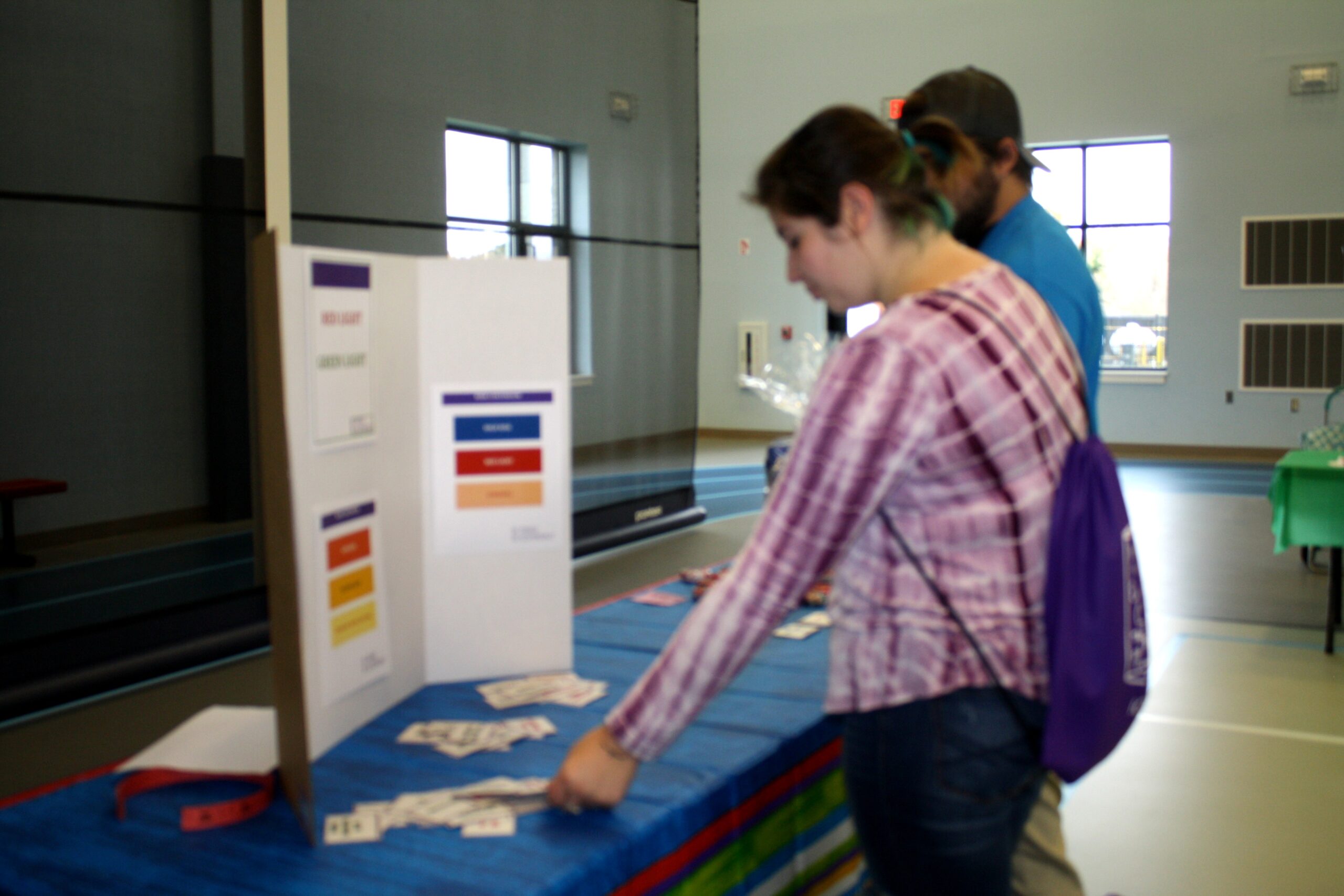
PRESQUE ISLE, Maine — The Aroostook County Action Program recently hosted its first ever “Let’s Talk, Aroostook” event Saturday in hopes of encouraging both teens and parents to have healthy, educated conversations about issues that are not always easy to discuss.
“Let’s Talk, Aroostook,” held at the Sargent Family Community Center in Presque Isle, came about through a grant that ACAP’s Improving Outcomes for Youth program received from the state Department of Health and Human Services. The program aims to educate youths and parents about sexuality, the prevention of teen pregnancy and sexually transmitted diseases (STDs), and how alcohol and drug use can negatively affect their decision-making process and influence high-risk decisions.
Activities and presentations were open to both teens and parents, with teens participating in activities that tested their knowledge of sexual health statistics and educated them on what defines low or no risk versus high risk behaviors. Games such as “Jeopardy,” “Green Light, Red Light” and “Walk the Line,” focused on the negative effects of alcohol and shed light on the myths and facts associated with sexuality and personal responsibility.
Amanda Whipple, 18, took part in the activities held in the community center gym on Saturday, all of which she said helped her think about these issues in a new way.
“I think this is a topic that’s important to learn more about, especially when it comes to having safe relationships,” she said.
Though no parents attended the scheduled presentations, Christina Theriault, family nurse practitioner for the Presque Isle clinic of Maine Family Planning, emphasized that increased awareness of sexual health issues and services comes out during a “public health crisis” both statewide and nationally.
According to recent data from the Centers for Disease Control and Prevention, nearly 2.3 million cases of sexually transmitted diseases such as chlamydia, gonorrhea and syphilis were diagnosed in the United States in 2017. The STD numbers in Maine also are rising steadily. According to data from the Maine Center for Disease Control and Prevention, 84 cases of syphilis were reported in the state in 2017, up from 48 cases in 2016 and an average of 20 cases in each of the previous five years.
But due to greater education, Theriault noted, more and more teens are recognizing the risk factors associated with unprotected sexual activity and feel more empowered to talk to parents, friends and healthcare providers about those issues.
“It’s a big change from decades ago where the attitude among teens was that STD testing is only for people who have had multiple sexual partners,” Theriault said. “Younger teens have been more likely now to want to get screened and then have those same conversations with friends.”
Jenny Paul, program director for Improving Outcomes for Youth, stated that although teen pregnancy rates have been declining in recent years, both younger and older generations need to continue having conversations around STD prevention and personal safety and responsibility.
“This is a topic that a lot of people don’t want to talk about, but what we’ve found is that most teens now prefer to talk to their parents before they engage in these behaviors,” Paul said. “That’s why it’s so important for parents to educate themselves and take the opportunity to talk to their teens before they get the information from someone else.”
Paul said that the DHHS Personal Responsibility Education Program, or PREP, grant will allow ACAP to continue offering similar events for at least another two years and she hopes to make “Let’s Talk, Aroostook” an annual event.




